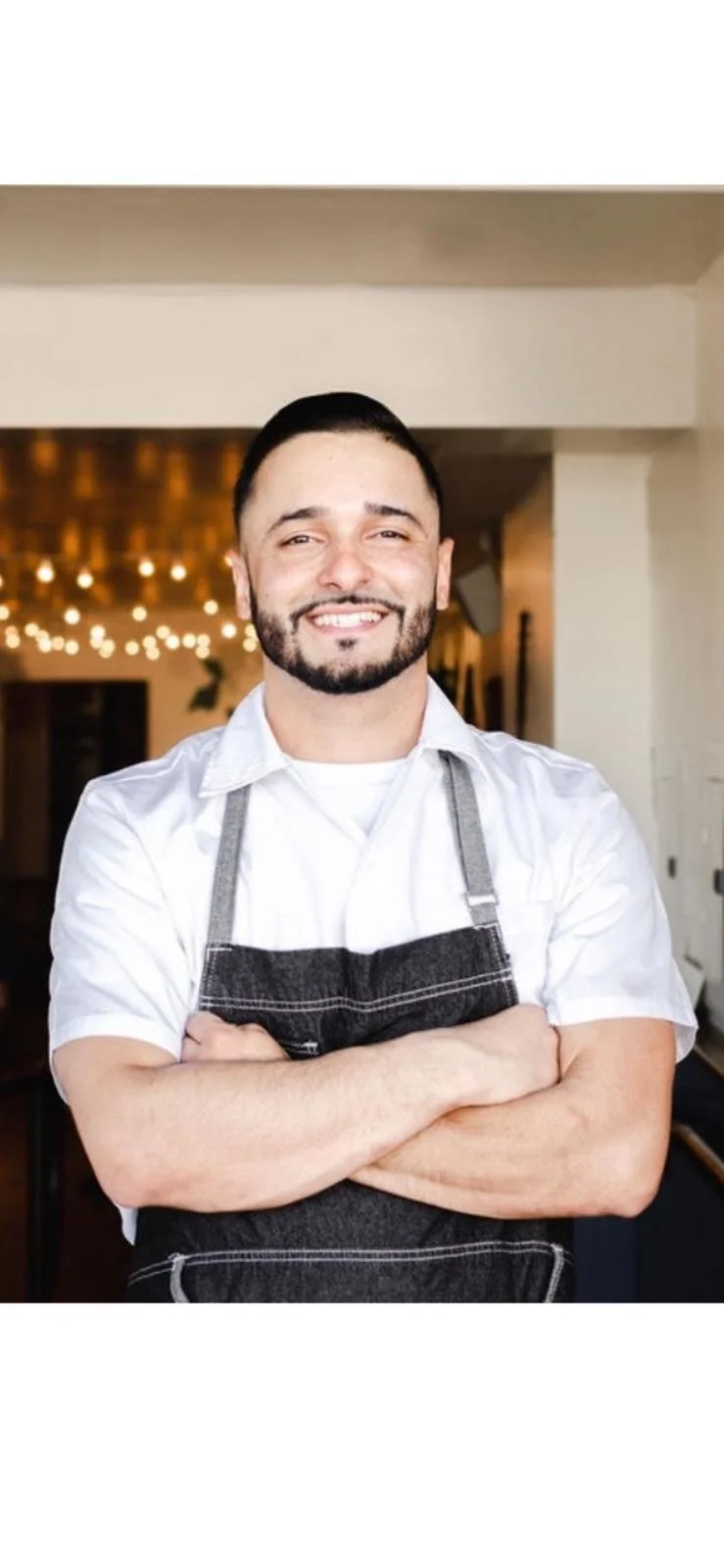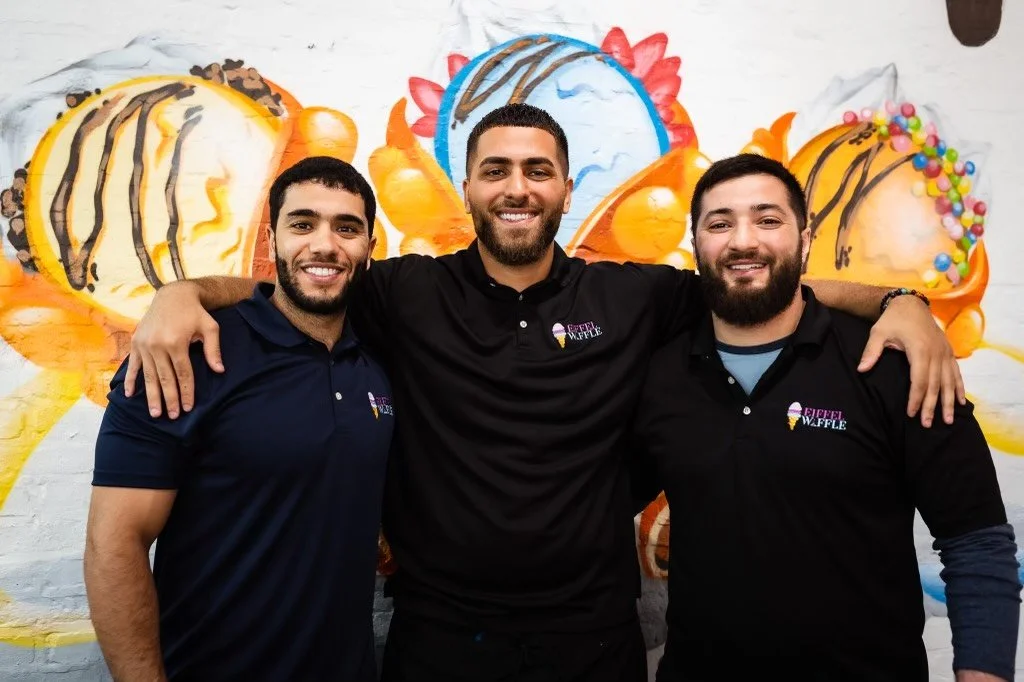Palestinian you should know: Samir Mogannam
The following was originally published in Palestine in America’s print Food Edition. Please consider subscribing or purchasing individual individual print and or digital copies.
Samir Mogannam, who began as a sous-chef and has dabbled in an array of cuisines, opened San Francisco-based Beit Rima —an ode to his mother — in 2019 and now is working on a cookbook with her to help preserve Palestinian identity.
In our interview with the Palestinian chef, we discussed his family, his thoughts on cultural preservation and his advice for any Palestinians considering joining the food industry.
Where in Palestine are you from?
Ramallah. Our family was one of the original founding families.
Explain your family's history. Were they exiled? Where did your parents/grandparents grow up?
Our family helped found the Quakers school in 1869, which helped sponsor many to immigrate to America. My grandmother came to San Francisco with five kids, and some of our other families went to Jordan. Some still currently live in Palestine; this summer was my first time meeting them. My family also still has land in the countryside [Editor’s note: The Quakers school referenced is the Ramallah Friends School].
When were you acutely aware of your Palestinian identity?
My grandmother’s home here had items from Palestine displayed all over, and we ate Palestinian food often.
Did you ever feel you had to hide your identity? Why or why not?
No, I didn’t, thank god. I grew up in a diverse area with lots of Palestinians, many of them first generation. There are times where it’s best to hide it, like when traveling to Palestine. But in the U.S., there is no need to hide it, so I don’t.
Why do you think food is so important for our cultural preservation?
A lot of us are coming to America and are losing the recipes we got from our parents. If we lose our food we lose our identity, and that [is] why I wanted to share our food with Arabs and non-Arabs. I’m publishing a cookbook with my mom, with some recipes from the restaurant and some from the home. Some recipes will be traditional, while others fusion. But my focus will be on traditional foods like waraq dawali, hashwa, goat, stomach and head, mansaf, etc. All of these are important to preserve. The new generation is cooking cheeseburgers and spaghetti for their kids, and it’s sad.
When did you begin to cook, and why did you decide to focus on Palestinian food vs. just Middle Eastern or Arab?
I have always worked in restaurants, so I started cooking early on in my career. I worked as a sous-chef and with many different cuisines. I decided to focus on Palestinian food because it can be interpreted as Turkish or Italian, and we wanted to preserve the culture and true heritage of our food. People will say they never had Arabic food, but when I mention hummus or falafel, they say, “Oh, you mean Mediterranean.” So rebranding it as Arab or Palestinian is important to make the distinction.
What challenges have you faced in your career as a Palestinian chef?
I haven’t experienced much in San Francisco. I try not to get political in my restaurant. It’s a complex subject, and I focus on the food and the experience I give my guests.
What is your favorite Palestinian dish, and why?
Mloukhiya and msakhan, but if I had to choose one it would be mloukhiya.
What is your favorite dish from your restaurant, and why?
Mezze sampler with house made bread: labneh, baba, hummus, mhamara, falafel, elongated pita with olive oil and za’atar on top that we bake in-house.
What has been the best reaction from customers to your food?
People telling me that it’s the best food they’ve had in their life. Not only is it their favorite restaurant in San Francisco, but also their favorite place. Other places have the food and fancy vibes, but our place is casual, chill, and you can enjoy at your own pace. We want people to feel they are coming into our house. I once grabbed two sets of tables from my unopened second restaurant to take to the first place to seat customers who were waiting for a while. I’m all about the hospitality and making people feel welcome.
Food as a form of resistance: explain your thoughts on this concept.
It’s important to represent our food as Palestinian to preserve our culture and food. Once we establish that, people can get to know and love us for our food.
What advice do you have for someone looking to launch a Palestinian food business?
Work in the industry first. There’s a lot of business aspects you need to learn by working for people, and with different people. I worked for a Moroccan Michelin chef, a Palestinian chef, and an Asian chef. You will learn the things you want to do and don’t want to do. Get some experience. It’s not about being a good cook; it’s about the concept and business plan that will be profitable. Otherwise, you won’t last. Don’t be too ambitious. Do the best you can, but your workers have to be able to execute it. Beit Rima isn’t the best or most authentic I can do, but it's profitable and my workers can execute.
What's your most controversial food take?
Labeling things that aren’t what they are [and] appropriating, inaccurately, different versions of our food.




